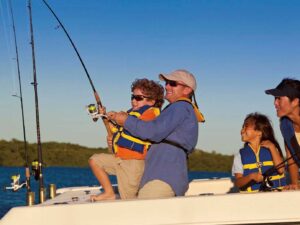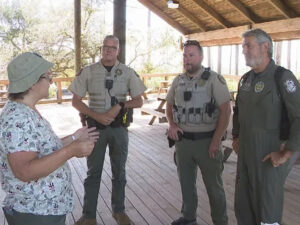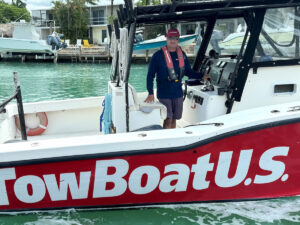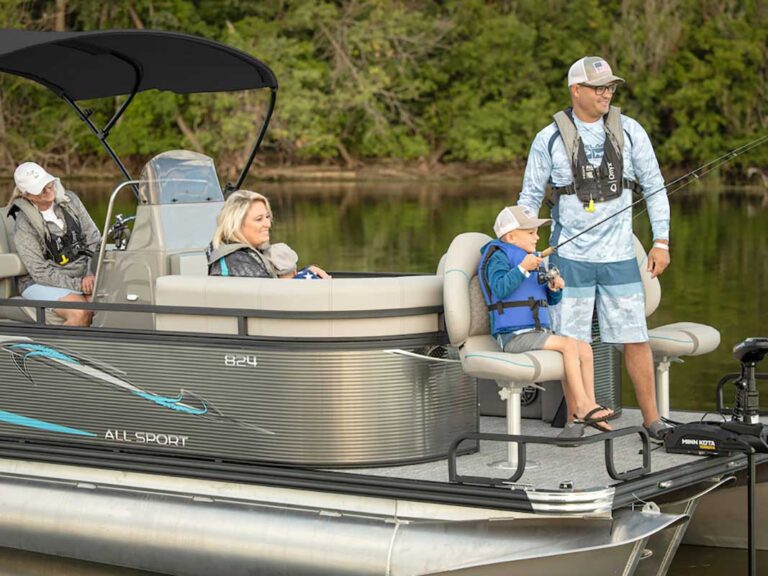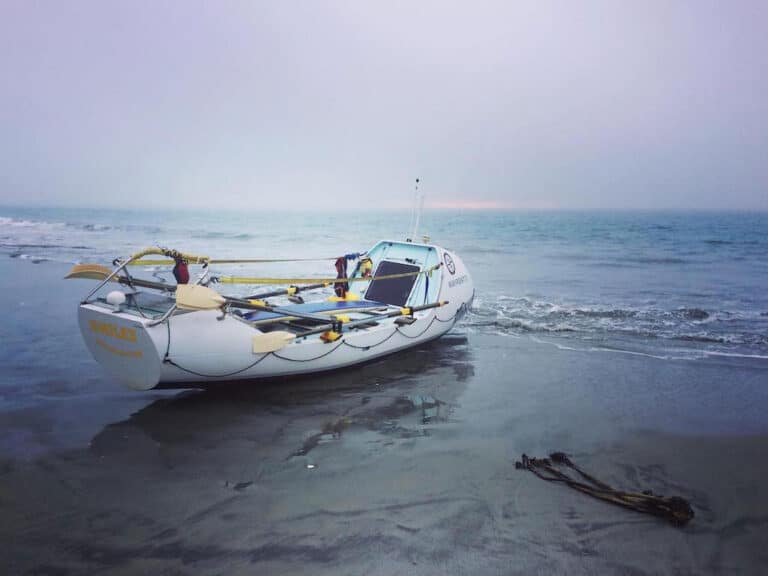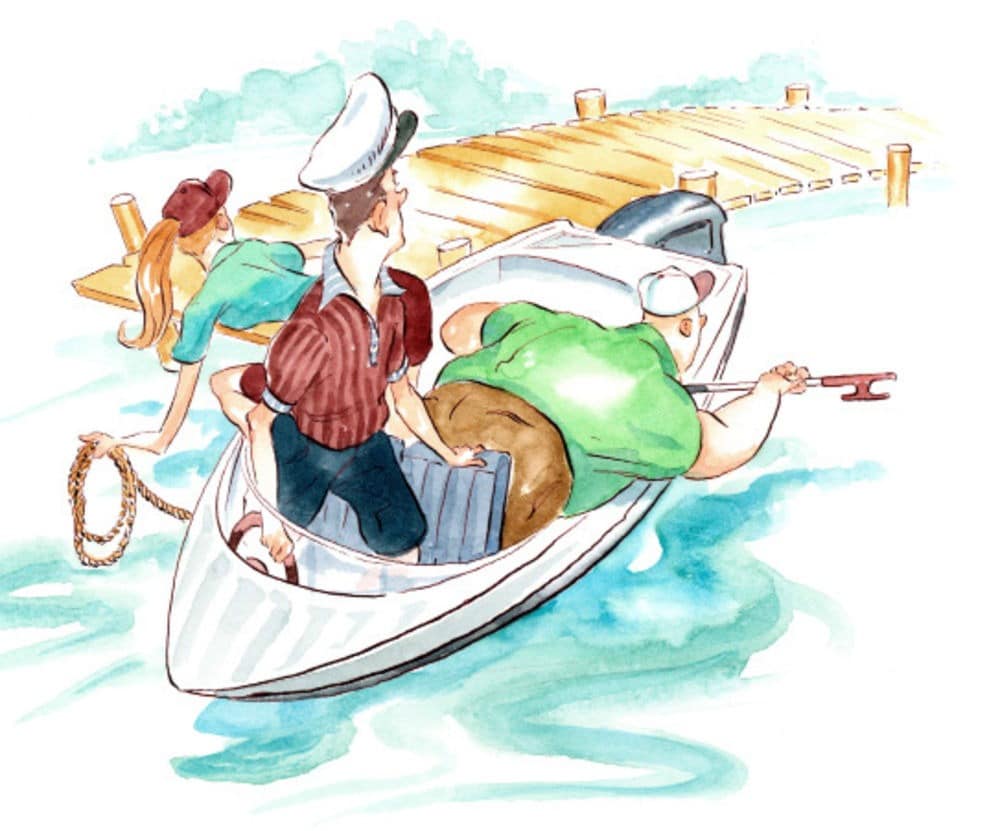
It was a textbook approach in challenging, though not horrific, conditions. All I needed to do was drop the control into neutral, cut the wheel toward the dock, and then deliver a final short burst of reverse. The foregoing would have resulted in us coming side-to so gently that an egg placed between the boat and the dock may not have cracked, this despite the brisk onshore wind.
Well, maybe it wasn’t that textbook, but it was good, I tell you, darn good.
But a smooth landing never happened. Instead, my mate that day, an old friend I hadn’t seen in a while, ended up stuck, as though secured with Velcro, to a splintery piling by his fluffy sweater. He’d jumped up to fend off, without being asked, on the theory that I was going to bang the dock and so needed his help. When I applied the aforementioned reverse and the bow swung out, he was caught unprepared. So he hugged the pole so as not to take a swim. This, of course, necessitated my putting the boat into forward gear lickety-split, before the distance exceeded his 5-foot-11-inch height that was now stretched between my bow rail and the sticky piling.
Yeah. It was one of those.
Now, the main thing isn’t my embarrassment at having ended up looking like a Gilligan while docking. (OK, it’s a little important.) Instead, two things are key. First, no one got hurt. Second, no boats were damaged in the making of that docking attempt. On top of everything, it all could have been avoided had I only stuck to my longstanding plan of always assigning crew aboard Breakaway a job of some sort.
For my daughters, I assign specific jobs so that they can learn boating and seamanship and experience the personal satisfaction of responsibility and completing a job well done. For adults who regularly join my wife and me, I have assigned regular jobs. Part of this is that friends are going to help anyway, so if they want to clean, show them where the bucket and brush are. In addition to personal growth, assigning tasks like this makes everyone feel a part of a team, and everyone is more familiar with the boat.
Do not neglect the occasional guest, though. Treat him or her like crew too. All too often, such guests will do as my friend did: help when none is needed and muck things up, perhaps getting hurt in the process. These folks’ hearts are in the right place, but if you have never fended off a boat, you may get hurt.
There’s a learning curve involved with being a deckhand, just like anything else. When assigning a task to a newbie, be clear and specific. Hand them a line or a fender, tell them exactly where to sit and wait, and make sure they understand that they are not to jump the gun. You may not use the words wait for my command, but that is what they need to understand. They also need to understand that you may not need them at all, but that having them there at the ready will definitely ease your burden.
So for their own safety, the safety of others and your peace of mind, give each member of your crew a job on board.
It’s great for camaraderie and, I believe, will pay dividends should there ever be an emergency.
Quick Tip: Instruct crew using boathooks to reach in the direction of the boat’s motion. Reaching “behind” may result in being pulled overboard.
* * * * *
The U.S. Coast Guard is asking all boat owners and operators to help reduce fatalities, injuries, property damage, and associated healthcare costs related to recreational boating accidents by taking personal responsibility for their own safety and the safety of their passengers. Essential steps include: wearing a life jacket at all times and requiring passengers to do the same; never boating under the influence (BUI); successfully completing a boating safety course; and getting a Vessel Safety Check (VSC) annually from local U.S. Coast Guard Auxiliary, United States Power Squadrons(r), or your state boating agency’s Vessel Examiners. The U.S. Coast Guard reminds all boaters to “Boat Responsibly!” For more tips on boating safety, visit www.uscgboating.org.

